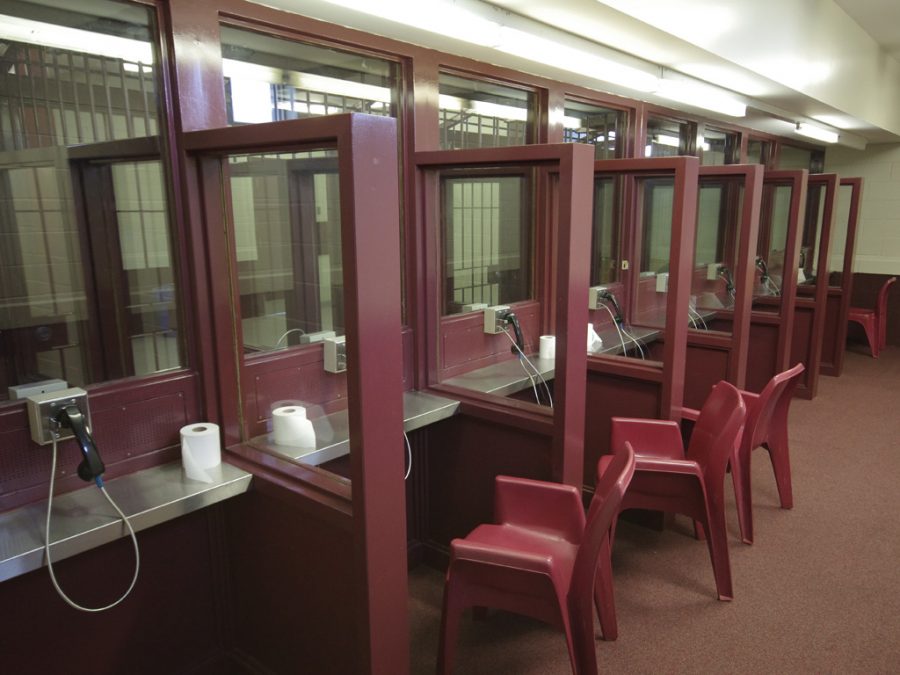Barron: Affordable Phone Calls Between Inmates and Their Families are a Bridge to Rehabilitation
(Courtesy Wikimedia Commons)
March 11, 2020
A 15-minute phone call to a local number from the Millard County jail costs $11.46. Just one county away, inmates pay only $3.45 for the same call. Disparities such as these exist because of each county jail negotiating their own individual phone service contracts. This allows counties to accept kickbacks from phone companies for overcharging their literally captive customers.
State Rep. Cheryl Acton (R-West Jordan) is standing up for Utah’s inmates and their families. This legislative session, Acton has proposed to legislation a bill that would prevent county jails from signing contracts with phone companies that would charge inmates over 21 cents per minute. As the session draws to a close, passing Acton’s bill, H.B. 405 should be a priority for legislators who tout “family-friendly” values.
While many inmates are allowed to write letters to loved ones and receive visitors, phone calls are integral in maintaining outside relationships during incarceration. Over 60% of America’s prison population is functionally illiterate, making writing and reading letters an impossibility for most inmates. Prisons have also limited communication with the outside world by introducing postcard-only policies. Utah’s Cache County Jail had instituted this recently, a policy that further restricted mail correspondence between inmates and their family and community, only to receive backlash. Additionally, as the state prison often pays county jails to house inmates, frequent in-person visits are rare for many serving time in rural jails far from their families. Phone calls help inmates preserve an important link to the outside world.
Sadly, most inmates’ families cannot afford $11.46 phone calls. Research shows that nearly two in three families with an incarcerated relative are already financially unable to meet their family’s basic needs, let alone to pay for expensive calls. Even as counties receive thousands of dollars in kickbacks, one in three families will go into debt keeping in contact with their incarcerated loved ones.
Inmates themselves do not have the resources to make frequent calls home either. While most inmates work, they only make between 40 cents to $1.75 an hour in Utah prisons. This means that a Milliard County inmate would have to work seven to 29 hours to just afford a single 15-minute phone call. Not to mention that inmates typically need these wages to pay for other important expenses in jail, from basic hygiene products to medical copays.
During the 2015 state legislative session, Utah lawmakers passed criminal justice reform legislation that invested almost $14 million towards reducing Utah’s high reoffending rate. This legislation has improved treatment services available to inmates while also funding research to discover other ways to “put the brakes on the revolving prison door.” However, this legislation did nothing to increase inmates’ contact with their family, despite numerous studies showing that supportive family relationships during incarceration decrease inmate recidivism. By simply making inmate phone calls affordable, Acton’s bill will probably help Utah’s recidivism rate to drop.
In the era of “unlimited talk, unlimited text,” no family should go into debt to stay in touch. Back in 2014, the Federal Communications Commission (FCC) capped how much phone companies can charge for calls from correctional facilities to out-of-state phone numbers. Currently, the rate cannot exceed 21 cents per minute. The FCC has championed affordable phone calls for inmates as contact with the outside community can “make a real difference in… promoting rehabilitation and reducing recidivism.”
Following the FCC’s example, Acton’s bill prevents county jails from extorting inmates and their loved ones. This family-centric legislation is something Utah’s “family-friendly” lawmakers should rally around to support. And if this legislation fails to pass before the close of the session, lawmakers will have condoned a predatory practice that keeps Utah families apart.








